2021 was a booming year for development finance in Latin America with 2022 showing no signs of stopping. This panel asks:
• How will DFIs re-shift their Covid strategies as economies in the region begins their recovery processes?
• How has the investment scope changed to include corporate and project financing ventures?
• In a post-Lava Jato Brazil, are DFIs able to access a broader client base years later rather than solely working with higher credit rated tier-1 corporates?
• What initiatives are DFIs implementing to guarantee the social and governance impacts do not fall behind as sustainable initiatives remain at the forefront of business strategies?
• Can collaborating with international and local DFIs help facilitate local currency financings?


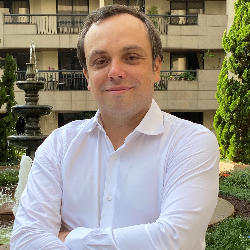
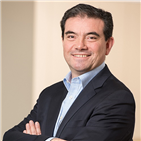


A new beginning is on the horizon for US agencies DFC and US Exim as mandates are revised to better serve borrowers in the current global climate. Their three main strategies are focusing on climate change, geopolitical issues with China, and local content issues related to the OECD Consensus. This session will explore:
What new support and financing programs are being introduced globally and within Latin America to aide recovery and push existing projects towards the finish line?
What role will US agencies place in the 5G rollout?
How will the B3W (Build Back Better World) infrastructure plan be rolled out, especially in Ecuador, Panama, and Colombia?

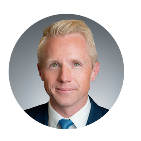

Bolsonaro's approval ratings are dropping as criticism surrounding his management of the country's Covid-19 response is fuelling a political crisis within the country. Regardless of the internal political dynamics, government ministries and institutions such as BNDES remain committed to attracting international investors into the country with plenty of energy and infrastructure opportunities.
A traditionally local currency focused market, will we begin to see more dollar or euro transactions?
How are ECAs dealing with PPPs and Concessions in Brazil and the rest of LatAm?
How are public entities such as BNDES assisting international investors with promoting the country's project pipeline?

Top bankers take the stage to share their thoughts on three different hypothetical transactions based on market conditions. Both those on stage and in the audience vote on whether they would take the deal.


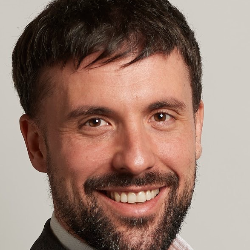

North America and Latin America are poised to bounce back economically after being some of the hardest hit regions globally. However, there is still some debate on whether we’ll see a V or W-shaped recovery. In the US, the Biden Administration’s ambitious infrastructure pipeline is looking promising. South of the border, uncertainty surrounding shifting political regimes, including upcoming elections, is resulting in more conservative strategies from international investors, particularly in the larger economies. The impact of the backlog of supply chain flows between Latin America, the US, and China may also result in concerns surrounding the timelines of projects taking place. This session considers all these risks and more, as we examine the macroeconomic outlook for the region.
Covid has temporarily shifted focus away from ESGs. However, as recovery begins, financial initiatives such as sustainability-linked bonds and loans are gaining momentum. This session considers:
• How will ESG credentials be measured to prevent greenwashing and mitigating reputational risk?
• How can lenders translate what borrower clients want within the ESG space into actual financial structures?
• Are lenders in the region forcing clients’ hand too strongly in efforts to push their sustainable agendas forward – is the region robust enough to handle the rate changes?
• Are financial incentives available on the corporate lending side for borrowers?
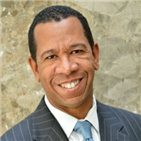




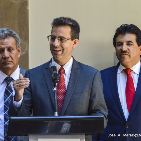




ECA financing has been on the rise as clients require more support due to the pandemic’s impact. Here, we consider:
• As government recovery plans are set out, will ECAs evolve their product offering away from plain vanilla structures or buyers’ credit to increase flexibility such as an untied lending product?
• Have the latest OECD Agreement updates improved ECAs’ ability to compete with other lenders, particularly in the US market?
• The pandemic may have temporarily taken the stage from sustainability, but have industry players moved away from fossil fuels too quickly?

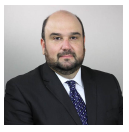




Paul Richards, Head of Structured Export Finance, ANZ (Australia and New Zealand Banking Group)
Jennifer Loewen, Director, International Financial Consulting
Hussein Sefian, Founding Partner, Acre Impact
Capital Chris Mitman, Head of Export & Agency Finance, Investec Bank
Dan Sheriff, CEO, TXF
Ecuador and Peru are Latin America’s underdogs harbouring a wealth of investment opportunities with upcoming infrastructure and energy auctions. However, the looming elections in Colombia, paired with Peru’s shift to the left with Castillo’s election result in hesitation from investors. To the north, Colombia is faced with a country credit downgrade and an upcoming election but with a strong pipeline thanks to its 5G toll road concession and renewable energy auction. Local currency, political shifts, and strong investment pipelines are the common denominator for all three – what will 2022 hold?

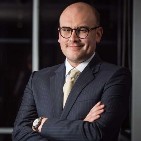
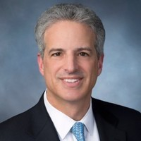

The demand for advancements in telecommunications has grown in recent years ranging from 5G developments to the expansion of digital infrastructure across the region. Some notable deals have taken place. We’ll be taking a look at:
• Navigating sovereign risk in Argentina
• The 5G CAPEX program in the US and overall 5G gap in LatAm
• Digital infrastructure investment opportunities and coping with the emerging market investment gap that exists within this asset class
• Moving past 5G, what other new technologies are being introduced to the pipeline?





The market calls for a better understanding of CPRI as certain large players have fully exited the industry – some viewed it as a shock while others viewed it as a prime opportunity. Due to the nature of the US financial system, the trade and credit insurance product is often overlooked as alternative instrument within the toolkit.
• How do we increase user familiarity with the product, including the functionality of the acceleration clauses outlined in contracts?
• Within LatAm, should lenders and borrowers alike be more transparent with each other and conduct more in-dept due diligence procedures to mitigate potential impacts on existing reputational risks? Are market participants willing to undertake further risks to reach the CPRI product’s maximum potential?
• Are there compelling barriers to entry for new players? What new product and technological advancements have become available in recent years?
• Do alternative uses for CPRI exist and in which areas?
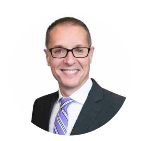

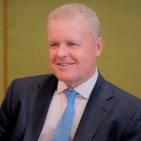
Mexico remains on of the key markets in Latin America, yet investor interest is faltering as AMLO's administration pushes private capital away, focusing on raising funds via its public institutions and privatizing key sectors such as energy and infrastructure. Covid has impacted the market moving away from its traditional active bon market towards other alternatives. Opportunities are still on the horizon, especially with ECA financing as Mexico is poised to hit its pre-pandemic economic levels causing the demand for new manufacturing equipment to grow. While some are hesitant in undertaking new business, others will seize the moment while its competitors' priorities lie further south of the region. This session will provide an update on the current state of play as well as the project opportunities available.


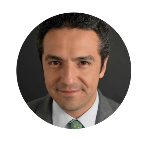
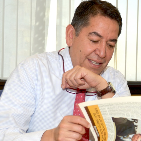


North America and Latin America are poised to bounce back economically after being some of the hardest hit regions globally. However, there is still some debate on whether we’ll see a V or W-shaped recovery. In the US, the Biden Administration’s ambitious infrastructure pipeline is looking promising. South of the border, uncertainty surrounding shifting political regimes, including upcoming elections, is resulting in more conservative strategies from international investors, particularly in the larger economies. The impact of the backlog of supply chain flows between Latin America, the US, and China may also result in concerns surrounding the timelines of projects taking place. This session considers all these risks and more, as we examine the macroeconomic outlook for the region.
Covid has temporarily shifted focus away from ESGs. However, as recovery begins, financial initiatives such as sustainability-linked bonds and loans are gaining momentum. This session considers:
• How will ESG credentials be measured to prevent greenwashing and mitigating reputational risk?
• How can lenders translate what borrower clients want within the ESG space into actual financial structures?
• Are lenders in the region forcing clients’ hand too strongly in efforts to push their sustainable agendas forward – is the region robust enough to handle the rate changes?
• Are financial incentives available on the corporate lending side for borrowers?










ECA financing has been on the rise as clients require more support due to the pandemic’s impact. Here, we consider:
• As government recovery plans are set out, will ECAs evolve their product offering away from plain vanilla structures or buyers’ credit to increase flexibility such as an untied lending product?
• Have the latest OECD Agreement updates improved ECAs’ ability to compete with other lenders, particularly in the US market?
• The pandemic may have temporarily taken the stage from sustainability, but have industry players moved away from fossil fuels too quickly?






Paul Richards, Head of Structured Export Finance, ANZ (Australia and New Zealand Banking Group)
Jennifer Loewen, Director, International Financial Consulting
Hussein Sefian, Founding Partner, Acre Impact
Capital Chris Mitman, Head of Export & Agency Finance, Investec Bank
Dan Sheriff, CEO, TXF
Ecuador and Peru are Latin America’s underdogs harbouring a wealth of investment opportunities with upcoming infrastructure and energy auctions. However, the looming elections in Colombia, paired with Peru’s shift to the left with Castillo’s election result in hesitation from investors. To the north, Colombia is faced with a country credit downgrade and an upcoming election but with a strong pipeline thanks to its 5G toll road concession and renewable energy auction. Local currency, political shifts, and strong investment pipelines are the common denominator for all three – what will 2022 hold?




The demand for advancements in telecommunications has grown in recent years ranging from 5G developments to the expansion of digital infrastructure across the region. Some notable deals have taken place. We’ll be taking a look at:
• Navigating sovereign risk in Argentina
• The 5G CAPEX program in the US and overall 5G gap in LatAm
• Digital infrastructure investment opportunities and coping with the emerging market investment gap that exists within this asset class
• Moving past 5G, what other new technologies are being introduced to the pipeline?





The market calls for a better understanding of CPRI as certain large players have fully exited the industry – some viewed it as a shock while others viewed it as a prime opportunity. Due to the nature of the US financial system, the trade and credit insurance product is often overlooked as alternative instrument within the toolkit.
• How do we increase user familiarity with the product, including the functionality of the acceleration clauses outlined in contracts?
• Within LatAm, should lenders and borrowers alike be more transparent with each other and conduct more in-dept due diligence procedures to mitigate potential impacts on existing reputational risks? Are market participants willing to undertake further risks to reach the CPRI product’s maximum potential?
• Are there compelling barriers to entry for new players? What new product and technological advancements have become available in recent years?
• Do alternative uses for CPRI exist and in which areas?



Mexico remains on of the key markets in Latin America, yet investor interest is faltering as AMLO's administration pushes private capital away, focusing on raising funds via its public institutions and privatizing key sectors such as energy and infrastructure. Covid has impacted the market moving away from its traditional active bon market towards other alternatives. Opportunities are still on the horizon, especially with ECA financing as Mexico is poised to hit its pre-pandemic economic levels causing the demand for new manufacturing equipment to grow. While some are hesitant in undertaking new business, others will seize the moment while its competitors' priorities lie further south of the region. This session will provide an update on the current state of play as well as the project opportunities available.





2021 was a booming year for development finance in Latin America with 2022 showing no signs of stopping. This panel asks:
• How will DFIs re-shift their Covid strategies as economies in the region begins their recovery processes?
• How has the investment scope changed to include corporate and project financing ventures?
• In a post-Lava Jato Brazil, are DFIs able to access a broader client base years later rather than solely working with higher credit rated tier-1 corporates?
• What initiatives are DFIs implementing to guarantee the social and governance impacts do not fall behind as sustainable initiatives remain at the forefront of business strategies?
• Can collaborating with international and local DFIs help facilitate local currency financings?






A new beginning is on the horizon for US agencies DFC and US Exim as mandates are revised to better serve borrowers in the current global climate. Their three main strategies are focusing on climate change, geopolitical issues with China, and local content issues related to the OECD Consensus. This session will explore:
What new support and financing programs are being introduced globally and within Latin America to aide recovery and push existing projects towards the finish line?
What role will US agencies place in the 5G rollout?
How will the B3W (Build Back Better World) infrastructure plan be rolled out, especially in Ecuador, Panama, and Colombia?



Bolsonaro's approval ratings are dropping as criticism surrounding his management of the country's Covid-19 response is fuelling a political crisis within the country. Regardless of the internal political dynamics, government ministries and institutions such as BNDES remain committed to attracting international investors into the country with plenty of energy and infrastructure opportunities.
A traditionally local currency focused market, will we begin to see more dollar or euro transactions?
How are ECAs dealing with PPPs and Concessions in Brazil and the rest of LatAm?
How are public entities such as BNDES assisting international investors with promoting the country's project pipeline?

Top bankers take the stage to share their thoughts on three different hypothetical transactions based on market conditions. Both those on stage and in the audience vote on whether they would take the deal.


